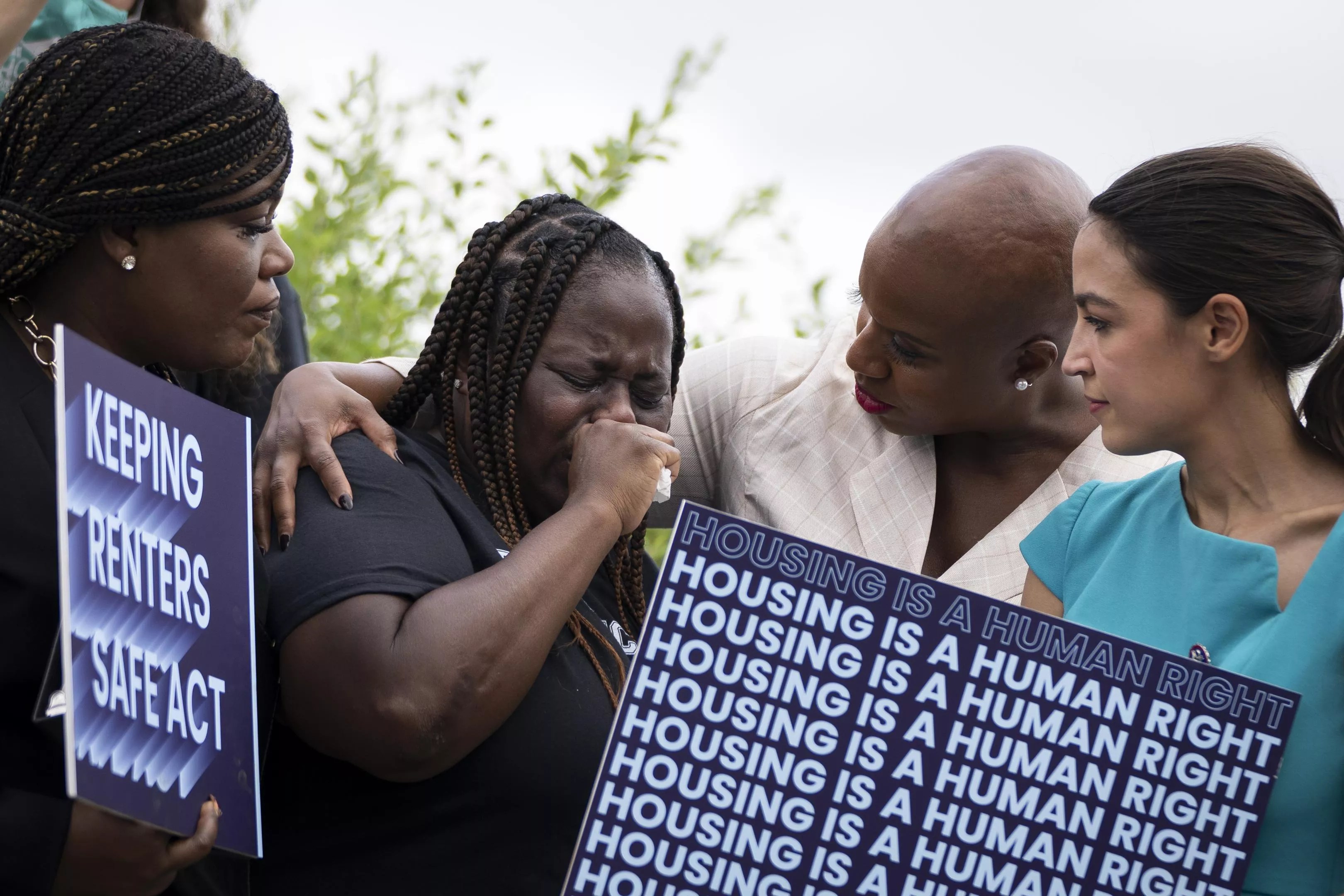
Photo by Drew Angerer/Getty Images

Audio By Carbonatix
As Miami-Dade County faces a worsening affordable housing shortage, advocacy group Miami Homes for All has zeroed in on how much funding is needed to jumpstart a portfolio of low-cost housing projects that could help alleviate the crisis.
Hint: It’s no pittance.
In a report released today, “Miami-Dade Affordable Housing Pipeline Analysis: The Funds Miami-Dade Needs Now,” the nonprofit research group says $1.5 billion in gap funding is urgently needed to develop the more than 100 affordable housing projects and nearly 13,700 units in the pipeline that do not have adequate financing across Miami-Dade County.
The funding could take the form of soft subsidies, bonds, or low-interest loans provided by local and state governments. The report predicts these funds “would unlock over $3.3 billion in additional available resources, including tax-exempt bonds, non-competitive tax credits, and private mortgages,” to further finance the projects as they move along through development.
“We have an opportunity right now to close a very significant gap in our affordable housing supply,” Annie Lord, executive director of Miami Homes for All, tells New Times. “We have these almost 14,000 units that are under site control. They are real projects, but we’re lacking the financing to make them happen. We can take a huge bite at the apple, but we need money to do that.”
Completed in collaboration with real-estate consultant Intersection Ventures, the report says the combined funding would approach the nearly $5 billion needed to complete construction of the pipeline.
The findings follow Miami-Dade Mayor Daniella Levine Cava’s announcement of the “305 Future Ready” bond, a $2.5 billion proposal to support affordable housing, flood prevention, septic to sewer conversions, and park resiliency. If approved by the county commission, the bond referendum will be presented to voters in November.
Since the COVID-19 pandemic, Miami residents have been grappling with increasingly exorbitant home insurance costs, skyrocketing rental prices, rising land value, and an unforgiving cost of living. Miami has emerged as one of the least affordable housing markets in the country as tenants are being priced out of neighborhoods at seemingly every turn. The county had nearly 5,000 eviction filings per quarter in 2022, exceeding pre-pandemic levels.
“The way young people are living is very high-risk. They cannot afford a place even when they’re doubled or tripled up.”
“I get more and more stories about what people are doing and how they’re living, and they’re really heartbreaking,” Lord says. “The way young people are living is very high-risk. They cannot afford a place even when they’re doubled or tripled up. They are sort of bouncing around quite a bit. It’s a very volatile existence.”
Miami Homes for All and the University of Florida’s Shimberg Center for Housing Studies reported last year that Miami-Dade faced a shortfall of more than 90,000 affordable units for renter households making below 80 percent of the area median income (AMI), specifically $75,000. Above that threshold, the shortage dropped to around 17,000 units.
For its new research, Miami Homes for All contracted Intersection Ventures to collect and analyze data to determine how much funding is needed to bring the countywide projects that lack financing to fruition. The analysis was funded by the Health Foundation of South Florida and produced in partnership with Miami-Dade County.
Marvin Wilmoth, managing principal of Intersection Ventures, tells New Times the recent findings offer residents, developers, and the county a workable pathway to address the crisis head-on. He says the report scoured publicly available state and local resources, along with information from the developer community, to identify what affordable housing projects are “under site control but need additional capital to get built.” The report leverages knowledge from the affordable housing group Enterprise Community Partners’ model for the San Francisco Bay Area.
“When you hear we need 90,000 units, a lot of times it feels as if it’s an insurmountable problem,” Wilmoth adds. “This is a way for us to put in a scaffolding strategy to how we actually get to solving the problem, as opposed to just identifying the problem and not really putting forth real solutions.”
Lord emphasizes that the new government financing is urgent to ensure that the shortage does not get too far out of reach and that the developers do not decide to convert their projects to market rate deals. Florida initiatives such as the State Apartment Incentive Loan (SAIL) program and the State Housing Initiatives Partnership (SHIP) are providing valuable aid but “fall far short” of the funding needed to sustain the Miami-Dade low-cost housing pipeline, according to Miami Homes for All.
“Developers won’t indefinitely pay the carrying costs for just building a property,” Lord says. “It’s really important we act now.”
“The pipeline won’t stay. It’s not a static thing,” Lord tells New Times. “Developers won’t indefinitely pay the carrying costs for just building a property. If they can’t do the deals that they’re proposing, we’ll lose those deals. It’s really important we act now.”
Wilmoth, the former vice mayor of North Bay Village, says it’s been disheartening to watch employees and other residents priced out of the area and moving to other parts of the state. He notes housing projects will not only help people survive but also lead to further investment throughout Miami-Dade.
“There’s going to be thousands of jobs created every time we build one of these developments,” he adds. “Someone who lives in the neighborhood where they work will invest more in that neighborhood.”
If the shortage does not get under control and people continue to leave, Lord fears the local economy will be at risk. She says the county is already experiencing net population loss.
“It’s an asset to have a tourism economy, a service economy that functions as well as ours does,” she says. “If we can’t have a labor force, then our economy will take a hit and it might slow down.”